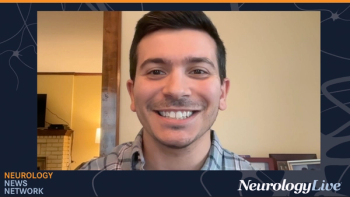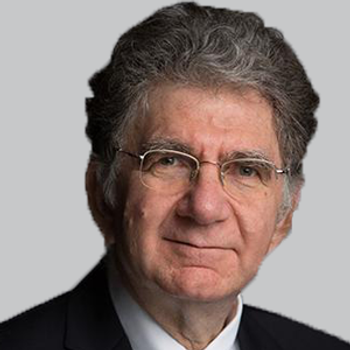
A groundbreaking phase 2 study evaluates PRI-002's potential to treat mild Alzheimer symptoms, aiming for significant safety and efficacy insights by 2026.

A groundbreaking phase 2 study evaluates PRI-002's potential to treat mild Alzheimer symptoms, aiming for significant safety and efficacy insights by 2026.

Test your neurology knowledge with NeurologyLive®'s weekly quiz series, featuring questions on a variety of clinical and historical neurology topics. This week's topic is on anti-amyloid treatments for Alzheimer disease.

Valiltramiprosate shows promising effects on brain structure and cognitive function in early Alzheimer disease, highlighting its potential for MCI treatment.

Neurology News Network. for the week ending August 2, 2025. [WATCH TIME: 4 minutes]

Take 5 minutes to catch up on NeurologyLive®'s highlights from the week ending August 1, 2025.

Roche's Elecsys pTau181 blood test gains CE Mark, enhancing early Alzheimer’s diagnosis and improving patient outcomes across the European Union.

The chief development officer at Spinogenix shared initial results from the first cohort of the company’s phase 2 trial assessing SPG302 in Alzheimer disease presented at AAIC 2025. [WATCH TIME: 6 minutes]

Incannex's IHL-42X shows promising results in treating obstructive sleep apnea, demonstrating significant improvements in key metrics and a strong safety profile.

New phase 2 data reveals AR1001's potential as a cognitive enhancer and disease-modifying therapy for mild to moderate Alzheimer's disease.

New data reveals lecanemab's long-term benefits for early Alzheimer's patients, showcasing improved cognitive outcomes and promising safety profiles over four years.

New findings reveal racial disparities in Alzheimer’s trial eligibility, highlighting higher screen failure rates among Black participants in the Auτonomy study.

The senior data scientist at Linus Health discussed how acoustic and speech-based metrics can be used to capture subtle cognitive signals during neuropsychological assessments. [WATCH TIME: 6 minutes]

AAV2-BDNF gene therapy shows promise in reversing cognitive decline in early Alzheimer's, enhancing neuronal function and safety in initial trials.

Navigating the transition from pediatric to adult neurology involves careful planning, education, and support to ensure optimal care and independence for young adults.

Capricor Therapeutics navigates FDA challenges for deramiocel, aiming to advance treatment for DMD-related cardiomyopathy with promising trial data.

The chief scientific officer at Neurogen Biomarking outlined a novel home-based diagnostic model that can accelerate detection of early AD through biomarker profiling. [WATCH TIME: 5 minutes]

The associate professor in the Department of Psychiatry at McGill University discussed the strengths and limitations of PET and blood biomarkers in identifying early Alzheimer disease.

Phase 2 VIVA-MIND study shows varoglutamstat is safe for early Alzheimer’s patients but fails to improve cognitive outcomes.

A new analysis revealed structural brain differences among patients with breast cancer who experienced chemotherapy-associated cognitive impairment following anthracycline-taxane treatment.

In this final episode, the sleep experts analyze real-world prescribing data to understand how low-sodium oxybate impacts the use of traditional alerting agents in narcolepsy. [WATCH TIME: 4 minutes]

New research reveals nicotinamide riboside supplementation enhances hippocampal perfusion in adults with mild cognitive impairment, but memory performance remains unchanged.

The associate professor of neurology at Icahn School of Medicine at Mount Sinai discussed the clinical and scientific advantages of blood-based biomarkers over imaging for Alzheimer disease. [WATCH TIME: 5 minutes]

Roche faces regulatory challenges for Elevidys, an approved gene therapy for Duchenne muscular dystrophy, amid safety concerns and clinical trial setbacks.

At AAIC 2025, the chief medical officer at CND Life Sciences discussed recent progress in detecting neurodegenerative diseases earlier using tools like the Syn-One Test. [WATCH TIME: 3 minutes]

New trial data reveals ATH434 significantly improves symptoms and biomarkers in multiple system atrophy patients, paving the way for potential treatment advancements.

Although the FDA-approved therapies lecanemab and donanemab both slow progression in early Alzheimer disease, a new study presented at AAIC 2025 highlighted differences in their safety profiles.

New research revealed that structured lifestyle programs could significantly enhance cognitive function in older adults at risk of decline, outperforming self-guided interventions.

In episode 5, the sleep specialists examine actigraphy data from a study of TAK-861 in narcolepsy type 1 and discuss the promise of home-based sleep tracking in clinical care. [WATCH TIME: 3 minutes]

In a new study presented at AAIC 2025, findings showed that walking significantly slowed cognitive decline in APOE ε4 carriers, especially among Black and White women.

Here's some of what is coming soon to NeurologyLive® this week.